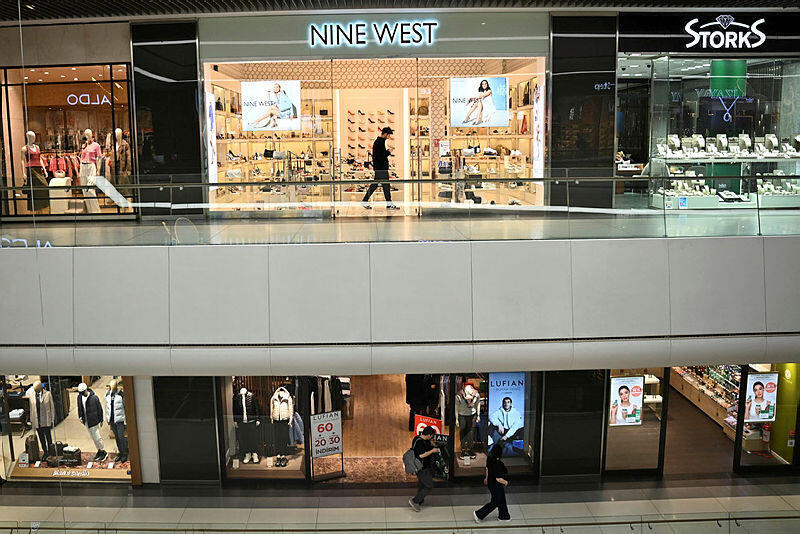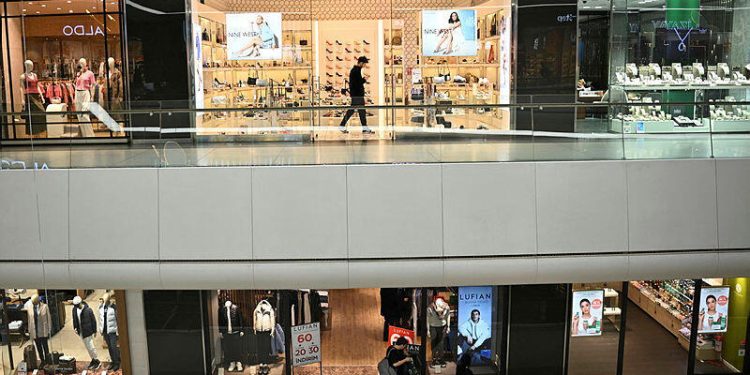“Stop buying! No supermarkets, no online shopping, no restaurants, cafes or service stations,” wrote Özgür Özel, opposition chief, on X (formerly Twitter), calling for an economic boycott of 24 hours on Wednesday, including a request to close companies.
2 View gallery


A vacant shopping center in Istanbul
(Photo: Dylan Martinez / Reuters))
“I call everyone to use their power as a consumers and participate in the boycott.” This call is more extreme than previous opposition calls to boycott the pro-Erdoğan media which suppress demonstrations, as well as companies that advertise these channels or relatives of the government. İMamoğlu himself joined the call for boycott of his detention cell.
The office of the prosecutor of Turkey has already announced that it will launch an investigation into the Boycott call on the accusations of “rhetoric of division, of incentive to hatred and discrimination”, adding to other surveys on the same subject, which include allegations of physical and verbal violence against societies targeted by the boycott. State representatives condemned the Boycott call, calling it “sabotage”.
The Boycott call follows the arrest of 301 Protestant students (out of approximately 1,900 detainees in total) who demonstrate against government actions and accusations in İmaMoğlu, which should replace Özel as leader of the Republican People’s Party (CHP) and run against Erdoğ in the presidential elections. Among the charges leveled to İmaMoğlu, Kurdish terrorists and corruption help. In addition, the University of Istanbul has revoked its academic diplomas on alleged “irregularities”, which would disqualify it to meet the eligibility criteria to present itself in the elections.
Turkey suffers from prolonged economic instability characterized by stagnation, depreciation of local currency and high inflation, which has led to a high cost of living. However, at the end of 2023, Erdoğan appointed a new finance minister and the Central Bank management was replaced, leading to a change in Turkey’s economic policy and making it more attractive to foreign investors.
These measures led to a drop in inflation below 40% (to 39%) in February for the first time since June 2023. On the other hand, the decision to stop İmaMoğlu and the following protests caused a 10% drop in the value of the local financial crisis and a 20% collapse of the market value, the most steep decline since the 2008 global financial crisis.
Erdoğan is aware that he must resolve manifestations and internal disorders, in particular to maintain stability with foreign stakeholders. Foreign investors have already started to withdraw some of their investments, foreign companies have slowed their activities with Turkish exporters, and the tourism sector fears a wave of vacation cancellations if the situation is not stabilized.
However, it is still time before the summer holiday season, and it is not certain that the troubles and demonstrations spread in popular tourist destinations along the Côte d’Antalya. Istanbul, which houses a fifth of the population of Turkey and responsible for around a third of the national GDP, poses a much more immediate and acute problem.
The Conglomerate Doğuş, closely linked to the government of Erdoğan and with television stations, energy companies and more than 200 restaurants, has become a target of demonstrations. “Doğuş will be buried underground,” promised Özel hundreds of thousands of Turkish demonstrators gathered in a park in Istanbul. “We will not set foot in their restaurants. Our money will not be spent on television channels that ignore the demonstrations and qualify them as” violent and anti-Turkish movements “, as Erdoğan himself described them.”
The Espressolab coffee channel has become a symbol of the fight. While the supporters of Erdoğan displayed thousands of selfies holding coffee cups and provision bags to express their support and confidence in the Turkish economy, many demonstrators surrounded the coffee chain, which has become a symbol of the regime, forcing the police to station officers around the 24/7 channel.
A resident of Istanbul, who refused to be appointed, told Der Spiegel: “Usually, I come here with my children in the afternoon. We love their food and their drinks, and it is quality time for us. But for me and other Turks of the middle class, there is no way to join the protests, even if we agree to the protective democracy and political persecution.


